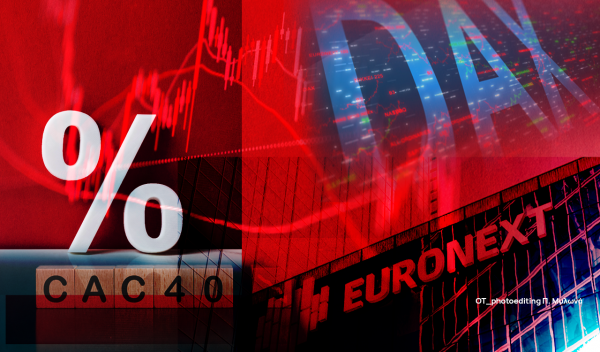
After the last upgrade by Standard and Poor’s, the Greek economy is flirting with its return to the international investment top league and in the last two months it seems to be winning a series of difficult market tests, collecting points from away games, ie borrowing from fairly low interest rates when issuing government bonds, but also at home, with the vote of approval from investors in Greek companies and shares.
Before the health crisis hit Greece and the world, the Greek economy had entered the game for upgrades by credit rating agencies in order to climb the ladder of investment grade in the category of the top leagues. The rating agency Standard & Poor’s made the surprise by upgrading Greece’s debt by one notch – to “BB” from “BB-” – with positive prospects, thus giving the ticket for a possible new upgrade in the next 12 to 18 months. Greece is now on the road to conquering the investment level it needs, which is two steps away, ever since creditworthiness had plunged into the “junk” category after 2010.
After the collapse of the economy in 2020 due to the health crisis, from the second half of 2021 Greece has begun to go through a 12-month high of expectations and sees the exit from the “junk” category closer, which may occur in 2022, while the Ministry of Finance and the government have placed their bets on achieving investment grade level by the first half of 2023.
So when will Greece make the big comeback on investment? Analysts and economists estimate that this could even happen in 2022 , as the assessments that will precede the end of the year may have paved the way for the upgrades by rating agencies. In the wake of last week’s upgrade, analysts see positive developments concerning the Greek economy and Greek banks. Indicative is the report of Citigroup that sees the investment level being achieved within 2022.
International investors and analysts agree on a key issue, which is the resource factor of the Recovery Facility and the rate of utilization of the billions of euros flowing into the country especially in 2022-2023. Political stability is also key as it seems in equilibrium. Although there is concern about the issue of red loans, this is assessed as positive since reduction moves are being made by banks, while it is pointed out that there is a plan to promote reforms in public administration, and the tax system with the main aim of creating a favorable environment for attracting investment.
Analysts predict that economic performance this year will be fueled mainly by domestic demand and exports, while it is estimated that travel receipts will not return to 2019 levels before 2024-2025. Investment activity is expected to improve, but Greece still has a less favorable business environment than its competitors. However, the government is reducing bureaucracy and promoting digital transformation. Rating Agencies report the reduction of red loans to banks and of course that the key is the decrease of non-performing loans of banks. They state that the measures taken by the government, such as the reduction of income tax, the reduction of the ENFIA property tax, etc., will support the disposable income of households and domestic demand, and that the government will continue with targeted tax measures, while shielding viable businesses and workers until the recovery accelerates.
Latest News

Trump Tariffs Jeopardize Growth: Piraeus Chamber of Commerce
The tariffs, aimed at reducing the U.S. trade deficit, are expected to have both direct and indirect effects on the European economy

EU Condemns Trump Tariffs, Prepares to Retaliate
As tensions escalate, the EU is expected to continue negotiations with Washington while preparing for potential economic retaliation.

The Likely Impact of Trump Tariffs on Europe and Greece
Trump tariffs are expected to negatively affect economic growth in the Eurozone while Greece's exports could take a hit.

Motor Oil Results for 2024: Adjusted EBITDA of 995 mln€; Proposed Dividend of 1.4€ Per Share
Adjusted EBITDA for 2024 was down 33% yoy. The adjusted profit after tax for 2024 stood at 504 million euros, a 43% decrease from the previous year

Cost of Living: Why Greece’s 3% Inflation Is Raising Alarm
Greece appears to be in a more difficult position when it comes to price hikes, just as we enter the era of Trump’s tariffs.

Fitch Ratings Upgrades the Four Greek Systemic Banks
NBG’s upgrade reflects the bank’s ongoing improvements in its credit profile, Fitch notes in its report, including strong profitability, a reduction in non-performing exposures (NPEs), and lower credit losses

Trump to Announce Sweeping New Tariffs Wednesday, Global Retaliation Expected
With Trump's announcement just hours away, markets, businesses, and foreign governments are bracing for the fallout of one of the most aggressive shifts in U.S. trade policy in decades.

Inflation in Greece at 3.1% in March, Eurostat Reports
Average inflation in the eurozone settled at 2.2%, compared to 2.3% in February

Greece’s Unemployment Rate Drops to 8.6% in February
Despite the overall decline, unemployment remains higher among women and young people.

Jerry Kalogiratos Highlights Key Role of Energy Transition and Data Demand in LNG Outlook
Energy transition and the prospects of LNG were discussed at Capital Link’s 19th Annual International Maritime Forum, during a panel discussion with Jerry Kalogiratos (Capital Clean Energy Carriers Corp.)
























![ΕΛΣΤΑΤ: Αυξήθηκε η οικοδομική δραστηριότητα κατά 15,6% το Δεκέμβριο [πίνακες]](https://www.ot.gr/wp-content/uploads/2025/03/DSC9655-2-1024x569-1-90x90.jpg)




![Τραμπ: ΕΚΤ και FED αναζητούν Πυθία για τα επιτόκια μετά τους δασμούς [γράφημα]](https://www.ot.gr/wp-content/uploads/2025/04/ot_trump_tariffs225-600x352.png)











 Αριθμός Πιστοποίησης
Αριθμός Πιστοποίησης